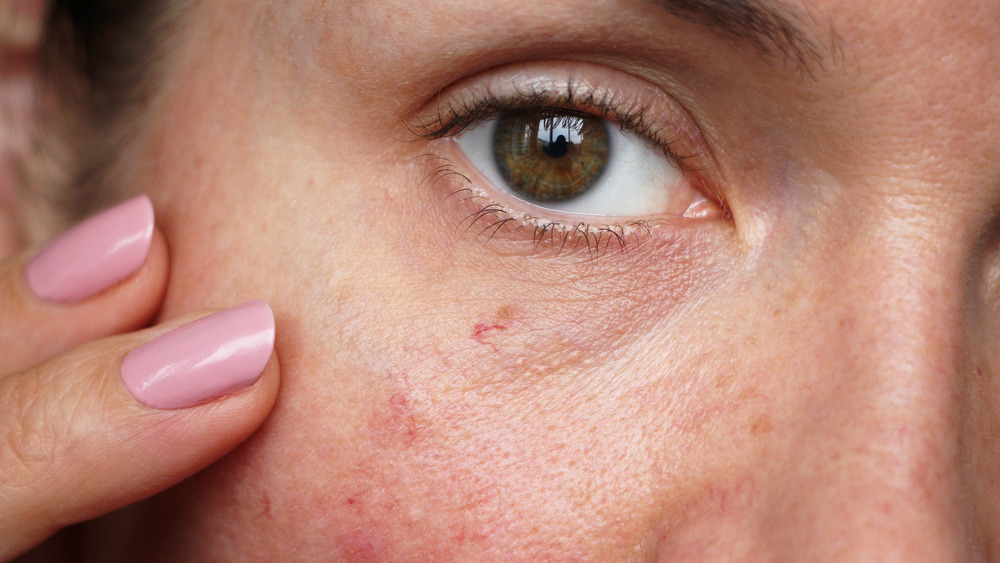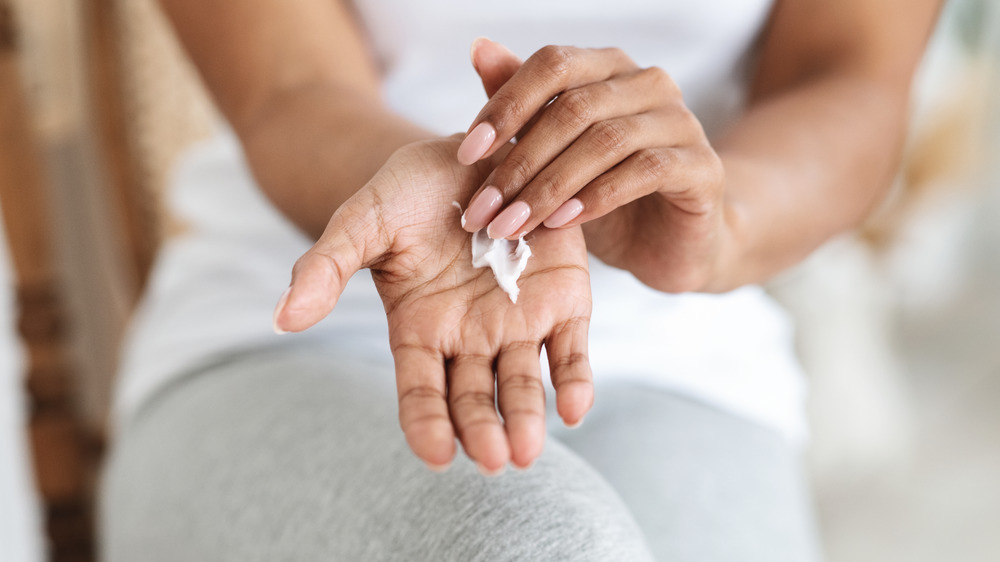Avoid These Skincare Ingredients If You Have Sensitive Skin
Sensitive skin can be a nightmare to buy products for — spending tons of money on serums, moisturizers and cleansers only to be met with blotchy, irritated skin. When you have a list of ingredients to avoid, however, the shopping process can be much easier.
Renee Rouleau explains the culprit to Byrdie, "The majority of the time, it's the person's use of harsh products that causes irritation. Simply put, avoid using irritating ingredients and your skin will be less irritated!"
The number one additive to avoid is alcohol, a common substance that many skincare products have to quickly blot off oil and excess moisture. The outlet notes that many creams and toners contain alcohol in various forms, so take a look at the label before you add it to your cart. Especially since many companies use green-washing tactics to make their products seem more gentle, bypassing the front side of the bottle can show you what's really in what you're buying. "We think that if something says 'natural' or 'organic' or 'plant-derived,' that it'll uniformly be healthy or good for us. But any of these [alcohols] we've talked about, you can have an allergy to...and these are fairly common allergens we see for our patients," Melissa Piliang, M.D., a dermatologist at Cleveland Clinic, told SELF.
Another common ingredient to be on the look out for is fragrance, Byrdie notes. Fragrance may cause a reaction, spurring inflammation and weakening inner layers of the dermis. Between classic offenders like alcohol and fragrance, sensitive skin is all but promised to experience distress.
People with sensitive skin should beware of sulfates
Much like shampoos, many skincare companies have steered clear of sulfates that often wreak havoc on certain types of skin. Their safety has been called into question over the years and the debate continues to vacillate, but they're known to cause inflammation, Byrdie notes. Namely, ammonium lauryl sulfate and sodium lauryl sulfate are two of the most common sulfates that sneak into many serums, creams and toners. Responsible for the lathering of many cleansers, sulfates aim to remove built-up dirt and oil. Kenneth Mark, MD, a board-certified dermatologist, tells Well+Good that sodium lauryl sulfate "is a surfactant that has been shown to increase transepidermal water loss and as such, can be somewhat drying and irritating, especially for those with sensitive skin."
On top of artificial additives, even classic alternatives like essential oils can pose problems. While their therapeutic effects are well documented, the chemical makeup of these oils can be too complex for sensitive skin. "Even though essential oils have a positive connotation, those with sensitive skin are more likely to have a reaction to anything including it," Mark explains.
Armed with information, your next trip to the drug store can go much smoother now that you know which additives you should avoid if your skin reacts to most products.

